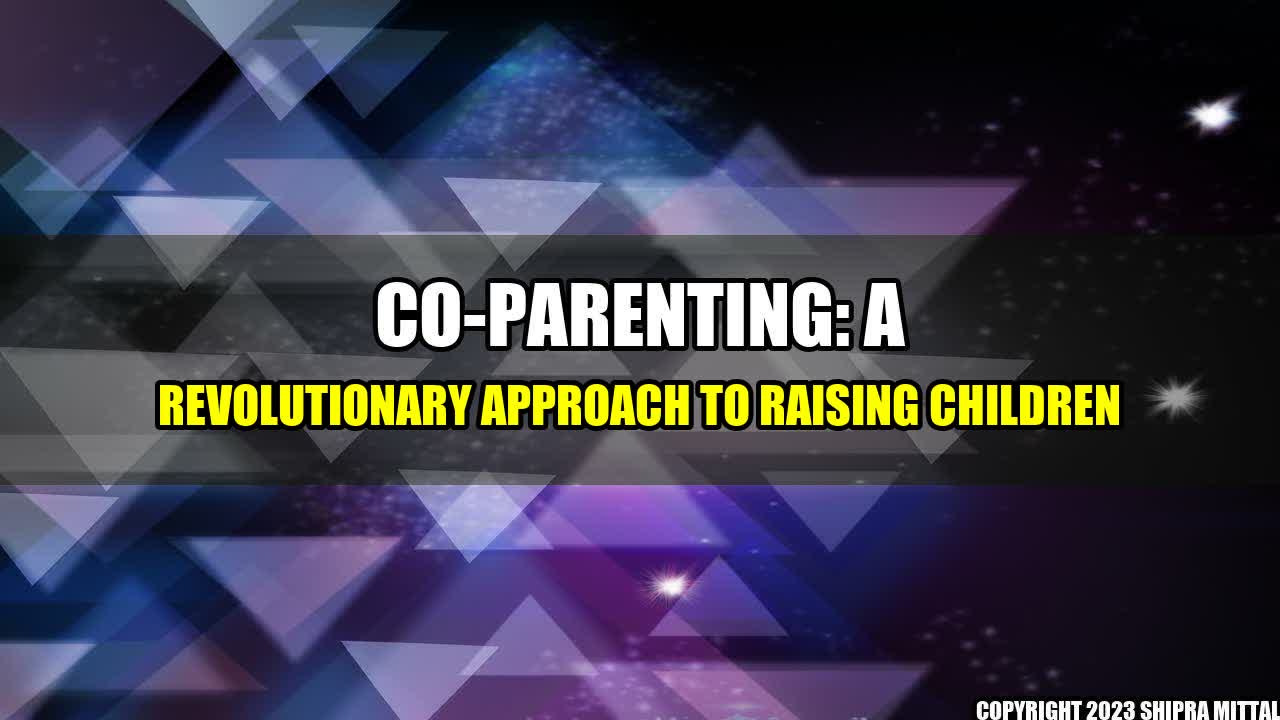
Once upon a time, in a far-off land, a family of four lived in a beautiful house with a white picket fence. The father went to work every day, while the mother stayed at home to care for the children. But the idyllic picture of a perfect family dissolved when the parents divorced, leaving the children in a state of confusion and anger.
This story is a common occurrence today, as divorce rates continue to rise and children are caught in the crossfire. However, there is an alternative way to approach parenting after divorce – co-parenting.
Co-parenting is a system where both parents work together to raise their children, despite no longer living together. This revolutionary approach has the potential to eliminate conflict, provide stability for children and create a positive environment for everyone involved.
Why Co-Parenting?
Here are some quantifiable examples of why co-parenting is becoming a popular approach to raising children.
1) Reduced Stress on Children
According to a study by Dalhousie University, children of divorced parents who co-parent cope better with the transition. They have better mental health outcomes, have lower rates of substance abuse and are less likely to drop out of school.
2) Better Mental Health for Parents
When parents work together, the level of stress decreases dramatically. A study by the American Psychological Association found that parents who co-parent after divorce have less depression, anxiety and stress.
3) Financial Benefits
With co-parenting, both parents contribute to the raising of children and share expenses. This can alleviate some of the financial strain that often comes with divorce.
Tips for Successful Co-Parenting
1) Communication is Key
In co-parenting, communication is everything. Both parents should be open and honest with each other, and prioritize the child's needs above their own.
2) Establish Consistent Rules and Boundaries
Children thrive on consistency, so both parents should work together to create rules and boundaries that apply to both households. This will help children feel more secure and stable.
3) Respect Each Other
While divorce can be painful, it's crucial to respect each other's roles as parents. Try your best to work through any issues or disagreements in a respectful and mature manner.
In conclusion, co-parenting is a revolutionary approach to raising children that has numerous benefits for everyone involved. By reducing stress on children, improving the mental health of parents and providing financial benefits, it's hard to ignore the benefits of co-parenting. By following these tips for successful co-parenting, it's possible to provide a positive environment for children to thrive in – despite the fact that their parents are no longer together.
References:
- Alhashm, H. (2020). The Impact of Co-parenting on Children's Mental Health Outcomes in Divorced Parent Families. Journal of Divorce & Remarriage, 61(6), 494-512.
- American Psychological Association. (2018). Parenting after Divorce.
- The Conversation. (2018). Co-parenting: why it's better for kids when divorced parents cooperate.
Hashtags & Category:
#CoParenting #SuccessfulParenting #DivorcedParents #FamilyLife #PositiveParenting
Category: Parenting & Family
Curated by Team Akash.Mittal.Blog
Share on Twitter Share on LinkedIn